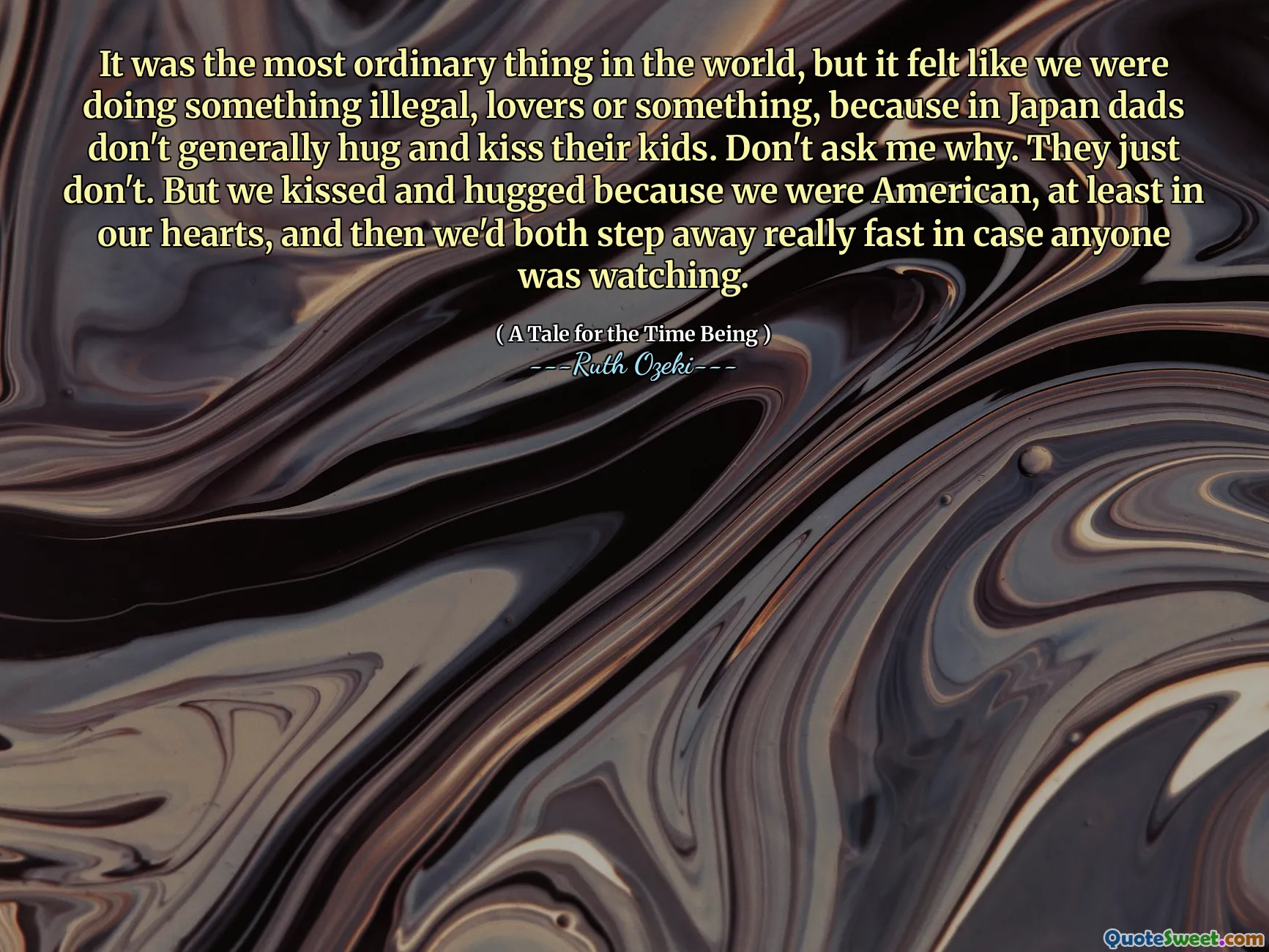
It was the most ordinary thing in the world, but it felt like we were doing something illegal, lovers or something, because in Japan dads don't generally hug and kiss their kids. Don't ask me why. They just don't. But we kissed and hugged because we were American, at least in our hearts, and then we'd both step away really fast in case anyone was watching.
The passage reflects a cultural observation about expressions of affection between parents and children in Japan, highlighting that such gestures, like hugging and kissing, are uncommon. The narrator and their companion find their actions to be both ordinary yet tinged with a sense of rebellion, as if they are breaking societal norms by engaging in these affectionate behaviors.
This contrast emphasizes their identity as Americans, suggesting that they feel more comfortable expressing love in ways that are culturally accepted in their home country. The quick withdrawal after their embrace indicates an awareness of societal expectations and a desire to remain inconspicuous, illustrating the tension between personal affection and cultural propriety.





